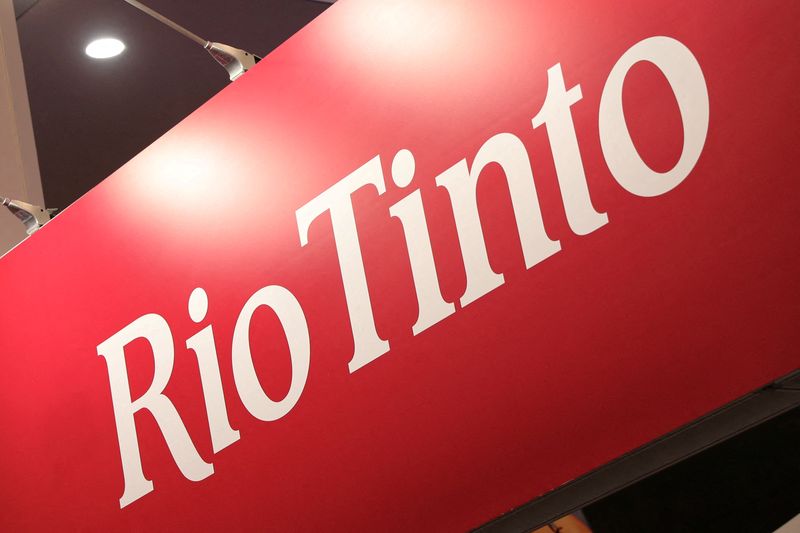By Melanie Burton and Rishav Chatterjee
MELBOURNE (Reuters) -Rio Tinto may consider a large acquisition but it would have to provide value that is hard to find amid a copper market that is running hot, CEO Jakob Stausholm said on Wednesday while discussing its first-half results.
Rio derives most of its profits from iron ore but is increasingly focused on copper growth where it expects growth of 3% a year from 2024 onward. That will come from existing projects, mainly the underground Oyu Tolgoi mine in Mongolia but also ventures with Codelco in Chile and First Quantum in Peru.
Speculation over large scale mergers in the mining sector has ramped up since BHP (ASX:BHP) walked away from a $49 billion plan to take over rival Anglo American (JO:AGLJ) in May. Anglo said the offer did not adequately value its long-term copper holdings.
Future copper demand is expected to surge to meet electrification needs as part of the transition to renewable energy sources and electric vehicles. Copper prices climbed to a record of over $11,000 a metric ton in May but have since declined.
"There's definitely the opportunity to grow further ... We are constantly looking for other opportunities," Stausholm said on a media call for its earnings release, referring to the outlook for its copper business.
"On the other hand, it is a bit of a heated market, so that's not an easy market to just buy yourself into. While we are looking we are also saying, we are not prepared to pay those prices."
Analysts at Macquarie previously said they expect Rio's copper and lithium growth to become "an emerging strategic focus" for investors. Rio's takeover list includes Canada's Teck Resources, but a bid was not imminent, a source told Reuters earlier this month.
Earlier on Wednesday, Rio reported half-year underlying earnings growth in line with market estimates as gains in its copper and aluminium businesses were offset by lower prices for iron ore. Shares were up 0.6% at A$115.39 ($74.97).
Iron ore prices tumbled about 15% in the first-half because of the Chinese property crisis but Rio Tinto (ASX:RIO) said the outlook there should support solid commodities demand.
"We see the Chinese economy growing plus or minus 5% and that is very good for commodity markets. You also see the U.S. growing. Not fantastic, but absolutely underpinning good markets and good demand for our products," Stausholm said.
The world's largest iron ore producer reported underlying earnings of $5.8 billion for the six months ended June 30, compared with $5.7 billion a year ago and in line with a Visible Alpha consensus of $5.8 billion.
Stausholm cited the "enormous" impact of China's green transition on steel demand, for solar cells and the expansion of wind power and electric vehicles, which he also expects to feed into higher consumption of high-grade iron ore.
That will benefit customers as its high-grade iron ore Simandou project in Guinea starts production late next year, Stausholm said.
The miner declared an interim dividend of $1.77 per share, in line with last year's payout, and below consensus estimates of $1.81 apiece.
Rio Tinto's net debt was $5.1 billion, around the higher end of analyst estimates, while its free cash flow was in line at $2.8 billion.

It expects capital investment at Simandou to accelerate in the second half from $3.7 billion in the first half.
($1 = 1.5392 Australian dollars)